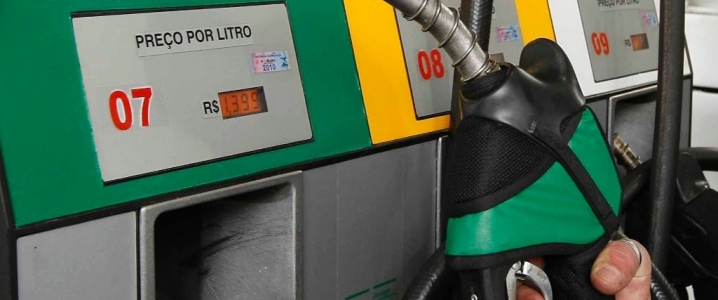Ethanol is known to damage small gasoline-powered engines, such as those in lawnmowers and leaf blowers. Consumer Reports explains:
A Department of Energy study found that E15 caused hotter operating temperatures, erratic running, and engine-part failure. But even gas with the usual 10 percent ethanol (E10) could help destroy small engines. ‘Ethanol has inherent properties that can cause corrosion of metal parts, including carburetors, degradation of plastic and rubber components, harder starting, and reduced engine life,’ says Marv Klowak, global vice president of research and development for Briggs & Stratton, the largest manufacturer of small engines. ‘The higher the ethanol content, the more acute the effects.’ Servicing dealers are reporting similar problems, even with E10, according to the Outdoor Power Equipment Institute, the industry’s trade group.”
I have some firsthand experience with this. A few years ago, I lived in Hawaii. In my location, it was difficult to get ethanol-free gasoline. I bought a brand-new lawnmower when I moved to Hawaii, and within six months it stopped working. I opened up the carburetor and found that the float was stuck in place with what looked like varnish. I assumed it was probably residue from components that had been dissolved by ethanol.
About a year later, I was mowing, and I heard a loud explosion and a thud against my house. The lawnmower sputtered and died. At first, I didn’t know what had happened, but a closer examination showed that a hole larger than a quarter had been blown out of the lawnmower’s engine. This was a catastrophic failure of the metal in the engine block.
I suspected that ethanol was the culprit, although I couldn’t prove it. But it did make me think about the possible implications.
The ethanol industry is profitable because there is a mandate requiring the use of ethanol in the fuel supply. Although there is a natural market for ethanol as an octane enhancer for gasoline, it would certainly be lower than the levels that are presently mandated. This means that wealth is being transferred from across the U.S. into ethanol-producing states.
But who is responsible for the consequences when ethanol damages small engines? I can tell you that in my case, I had to buy a new lawnmower. I expect that is the situation in many cases where ethanol damages an engine. The ethanol industry profits, but they don’t bear all the costs. Related: Trade War Could Be ‘Pivotal’ For U.S. LNG
This isn’t a hypothetical. Ethanol is known to damage small engines, as well as some older automobile engines. So, now that the Trump Administration has announced plans to allow higher ethanol blends to be sold year-round, it is inevitable that more repair costs are going to pushed onto consumers. This is just another way of subsidizing the ethanol industry.
This week the oil industry threatened to sue the Trump Administration over the change, arguing that Environmental Protection Agency (EPA), under the Clean Air Act, does not have the authority to make this change. Rather, they argue, it requires an act of Congress. The American Petroleum Institute (API) also released a poll last week showing that the majority of voters are concerned about the proposed change, due to the potential impact on vehicles.
The ethanol industry will claim this is about choice. But that’s not true. The ethanol industry doesn’t want consumers to have an unhindered option to choose ethanol-free gasoline. If they did, we wouldn’t have an ethanol mandate. So we end up with a fuel that is forced by government mandate into the fuel supply, and the negative costs get passed on to consumers.
ADVERTISEMENT
By Robert Rapier
More Top Reads From Oilprice.com:
- This High Profile Merger Could Impact EU Gas Markets
- What’s Behind The Continued Selloff In Oil?
- U.S. Oil To Significantly Outperform This Year



















since year 2010 about E-10 and E-15 .
I don't get it , that these small engine manufacturers have not
managed to assemble Ethanol-Ready engines in the past eight years .
While automobile engines are working with this kind of fuel ,
Briggs & Stratton are too shy to ask for subsidaries it seems .
What an ecological feeling to sell , and people are willing to pay
for a lawn cutter !
People with a lawn usually have children , and it would give a good
feeling , being able to use ethanol fuels !
Last summer I did an online search on what causes so many of the lawn mowers I know, so much grief. Beware letting them sit around for a season! My sources seemed unanimous in saying that ethanol is a big contributor to seizing up. The remedy seems to be adding additives to your tank. For sure, that's what all of the fuel-additive companies say.
Can E10 just come out of the box bearing all the necessary additives for engine protection?
This is just BIG OIL trying to convince us that Ethanol fuels are the devil.
It's too bad the Crappy Corn Gas industry has so many politicians in their pockets. Crony capitalism at its worst.
Bio 'butanol ' however does not mix with water and does not cause engine problems and is made from the same things ethanol is made from. So if we could somehow make that instead, and we can, all these ethanol issues will be gone.
And be sure to drain the old gas out of the unit before putting it away!